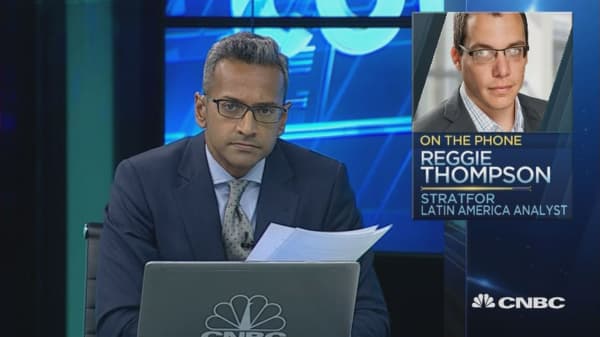With the nation on the brink of collapse, Venezuelan officials Monday were scrambling to keep the country afloat.
But a plunge in crude prices, rampant inflation and a currency crash has left the once oil-rich nation with few options to head off political and social chaos.
Opposition leaders over the weekend protested a 60-day state of emergency declared by President Nicolás Maduro on Friday night, based what he called plots from Venezuela and the U.S. to subvert him.
With the economy in freefall, hungry mobs have looted food stories, power and water are in short supply and hospitals are unable to care for newborns.
"You can hear the ice cracking. You know there's a crisis coming," a U.S. official told a group of reporters Friday, according to published reports.
That crisis has been building for years, but the pace of Venezuela's decline has worsened in recent weeks. Mobs have stolen food and clothing amid shortages of many basic consumer products.




